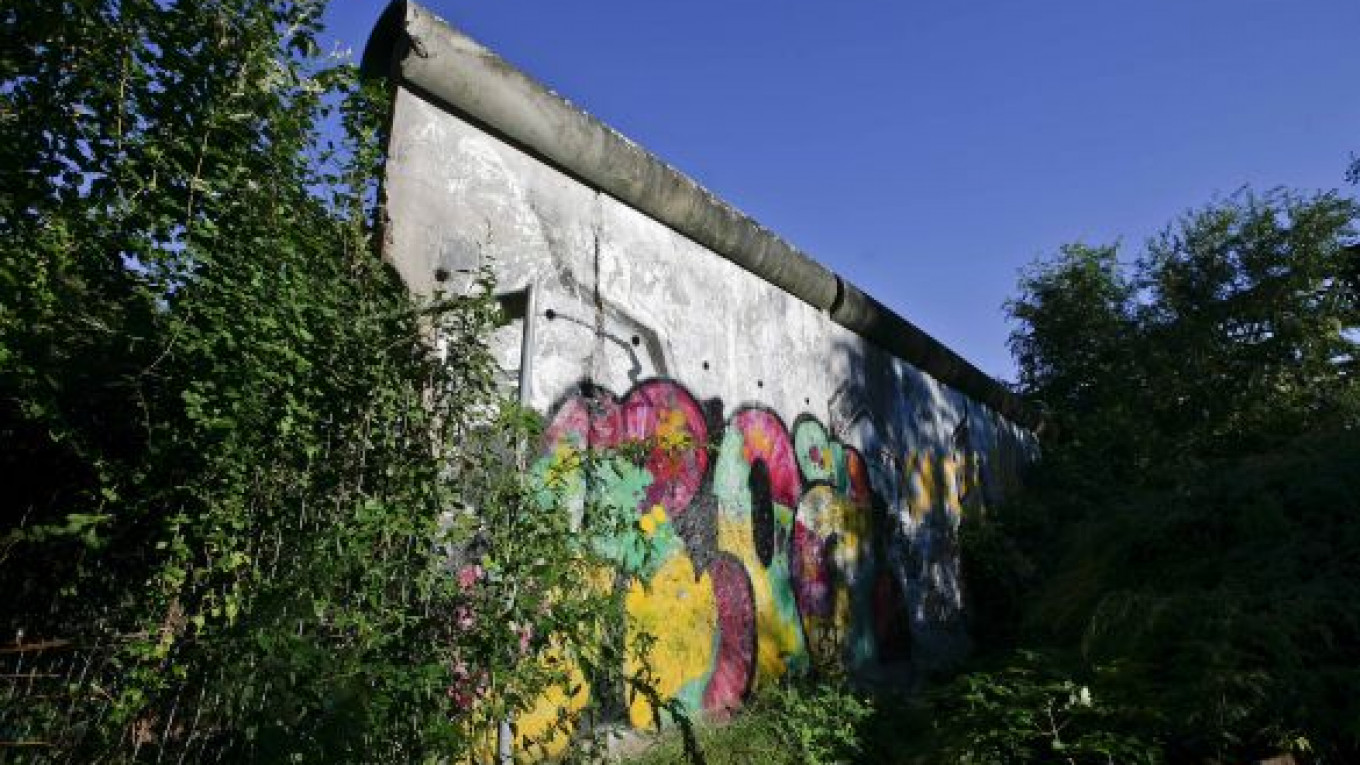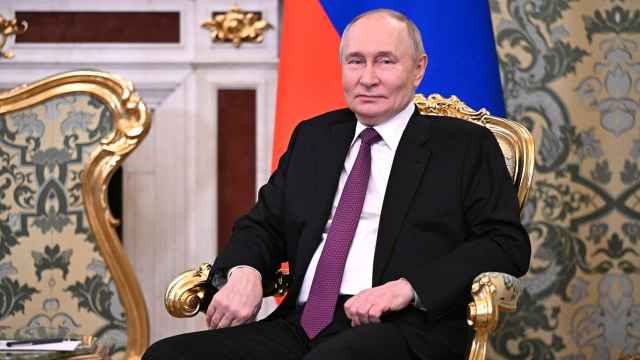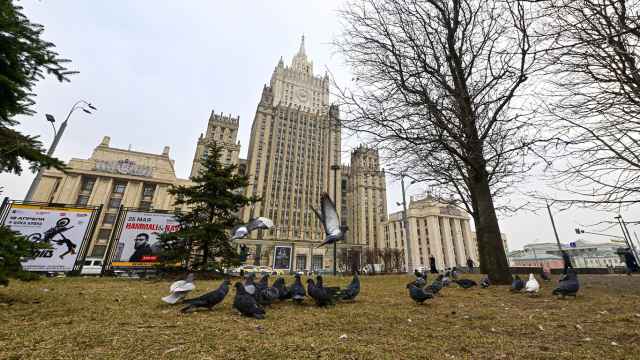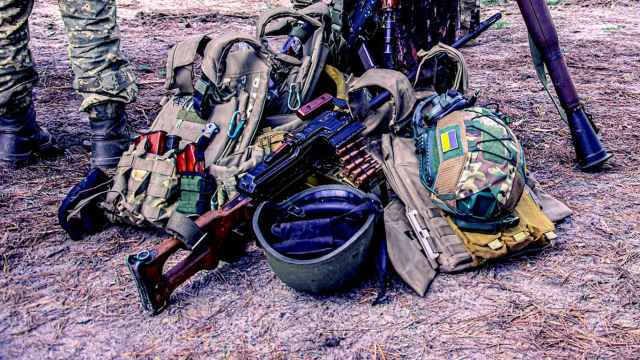BERLIN — Angela Merkel, the leader of Europe's richest country, still hoards food.
That's how much power Cold War-era habits still hold over Germans like Merkel who grew up in the communist East, a full two decades after reunification.
The chancellor still does her laundry with an East German liquid detergent, prepares East Germans' favorite Soljanka soup (made with sausages and pickle juice) — and can't fight the urge to stockpile goods she sees at the supermarket.
"Sometimes I can't stop myself from buying things just because I see them — even when I don't really need them," the 56-year-old Merkel told the SuperIllu magazine ahead of celebrations last Sunday of the 20th anniversary of unification.
"This inclination to hoard is deeply ingrained in me, because in the past, in times of scarcity, you took what you could get," Merkel said, referring to former times under communism when people would stand in line for hours to buy a few bananas or oranges.
Germany was divided into communist East Germany and capitalist West Germany following the defeat of the Nazis in World War II. The eastern German Democratic Republic formally joined the western Federal Republic of Germany on Oct. 3, 1990, after months of peaceful protests had brought down the ailing communist system in the East.
The reunited country has emerged as the economic powerhouse of Europe and a leader on the world stage. But while boundaries have blurred over time, many "Ossis" and "Wessis" — the nicknames for those born and raised in the East and West — still seem to stick to old mind-sets and keep to themselves.
The two increasingly live side by side in German cities, but it's still relatively rare for social circles to cross the East-West divide.
Despite all the efforts to adjust the standard of living in both parts of the country, many inequalities remain and East Germans are still underrepresented in many parts of society.
While Merkel is from the East, there are no Ossis in her Cabinet. Not a single football club from the East plays in the national Bundesliga league, and few former East Germans have made it to the higher ranks of big companies or the army.
"It is probably going to take another two or three generations until we all will say again 'We are one people,'" said Doreen Kinzel, a 39-year-old East German who moved to the West right after the fall of the Berlin Wall and now works in event management in Berlin.
"Nonetheless, we should not constantly talk about all the things that separate us — in the end we're all Germans."
Merkel called the unification a "stroke of luck" and said the ongoing reconstruction of East Germany — largely at the expense of the former West Germany — has been a success.
"After the reunification there was a certain sense of foreignness, because daily life in the former East German states was completely turned inside out — everything from the shops to the bureaucracy to the working world," Merkel said.
"I think it has been a tremendous feat on the part of East Germans since 1990, to adapt to everything changing."
Despite the difficulties in overcoming four decades of separation and opposing political systems, Germans are slowly coming to feel as one again.
In a poll conducted by Forsa Institute last week, 48 percent of Germans said Easterners and Westerners see themselves as one people again. Seven years ago, only 31 percent believed this. Still, 47 percent said that what divides them is still more significant than what unites them today.
Germans from both sides of the former Iron Curtain were united in an explosion of national pride when they hosted the soccer World Cup in 2006. And during this summer's World Cup, fluttering German flags were ubiquitous from Dresden in the East to Düsseldorf in the West.
Among the biggest problems that plague the former East now are unemployment and a constant decline in population — with many heading to the West to search for jobs.
Despite the better than expected economic upswing, unemployment in the former East German states stands at 11 percent compared with 6.2 percent in the former West.
Almost 1.1 million people — mostly women and young people — have moved from East to West since reunification, leaving behind an aging, childless population and stretches of empty neighborhoods that look like eerie ghost towns.
However, Eastern unemployment has declined dramatically since the 18.7 percent registered in 2005.
The federal government has invested billions of euros into the five former Eastern states — Brandenburg, Mecklenberg-Western Pomerania, Saxony, Saxony-Anhalt and Thuringia — and West German and East German taxpayers alike have been contributing through so-called solidarity taxes that flow to the East.
First levied in 1991, the tax has generated 187 billion euros ($254 billion) that has gone to improve roads, schools, utilities and other essentials in the former East. The 5.5 percent tax on everybody's income is scheduled to run through 2019.
Former German Chancellor Helmut Kohl, who oversaw reunification in 1990, acknowledged in the Bild daily on Friday that it was taking a long time to create "inner unity" among the country's people.
"Of course, the entire [unification] process is much slower than we first thought it would be, but it is all only a matter of time," he said.
A Message from The Moscow Times:
Dear readers,
We are facing unprecedented challenges. Russia's Prosecutor General's Office has designated The Moscow Times as an "undesirable" organization, criminalizing our work and putting our staff at risk of prosecution. This follows our earlier unjust labeling as a "foreign agent."
These actions are direct attempts to silence independent journalism in Russia. The authorities claim our work "discredits the decisions of the Russian leadership." We see things differently: we strive to provide accurate, unbiased reporting on Russia.
We, the journalists of The Moscow Times, refuse to be silenced. But to continue our work, we need your help.
Your support, no matter how small, makes a world of difference. If you can, please support us monthly starting from just $2. It's quick to set up, and every contribution makes a significant impact.
By supporting The Moscow Times, you're defending open, independent journalism in the face of repression. Thank you for standing with us.
Remind me later.






